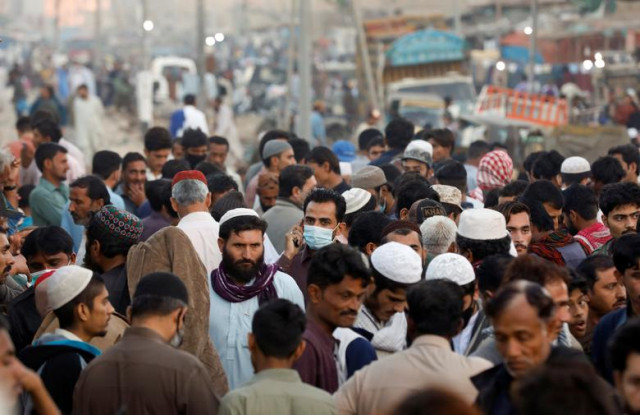Economy ‘resilient’ in the time of Covid
Experts say Pakistan fared much better than many other emerging markets

Experts have agreed that Pakistan’s economy fared much better than many other emerging markets during the coronavirus pandemic which has caused the entire world economy to shrink.
However, they believe that a clearer picture of the national economy will emerge later this year after Covid-19 vaccines are administered to the general public on a large scale.
Taking part in a panel discussion titled “Post Pandemic Economy of Pakistan” at the 12th Karachi Literature Festival (KLF) on Sunday, State Bank of Pakistan (SBP) Deputy Governor Murtaza Syed said many emerging markets witnessed 5-10% contraction in growth while Pakistan faced just 0.5% decline.
“After the pandemic hit Pakistan, our current account went from deficit to a surplus, foreign exchange reserves rose to $13 billion and the country improved significantly on the fiscal front,” he said. “Inflation remains high. However, it has retreated from the double digit numbers seen during the Covid shock.”
According to the SBP deputy governor, the economy has largely bounced back to the same level where it was in pre-Covid times. “The currencies of Egypt, Turkey, Brazil, South Africa depreciated by 30-40% in the past one year but Pakistani rupee remained largely stable,” he added.
Keeping earlier global financial crunches in view, he said, whenever an external shock struck the world, Pakistan’s economy plunged. However, this was not the case during Covid-19 pandemic.
“Our growth fell to zero during the global financial crisis of 2008. But this time the national economy remained resilient and Pakistan came out much better than other emerging markets,” he said.
Citing the reason behind this, he said when the virus hit Pakistan the country was in the process of tackling with the ballooning fiscal deficit and narrowing the current account deficit through institutional reforms which helped keep the economy strong amid the Covid crisis.
Secondly, the immediate measures undertaken by the SBP, such as slashing the interest rate to 7% and financing wages and salaries of workers, helped the economy recover better than its global peers.
Speaking at the panel discussion, Adviser to the Prime Minister on Institutional Reforms Dr Ishrat Husain said when Covid-19 broke out, the federal government and the SBP realised that they needed to make concerted efforts to reach out to poorer segments of the economy.
“On the one hand, we needed strategies to help those who lost their jobs such as daily wage earners and hawkers while on the other hand, we required a roadmap to encourage businesses to run efficiently in order to keep the wheels of the economy turning,” he said.
He appreciated the SBP for introducing multiple facilities at subsidised rates to help the economy escape the crisis. Talking about the impact of the crisis on different sectors, Bank of Punjab President Zafar Masud said Covid affected the economy in many different ways.
He said the technology sector expanded rapidly due to it but at the same time, travel and tourism were hit the worst. He pointed out that the real impact of the disease on the banking sector would be visible after a few months when the benefits of the SBP schemes would become visible.
Masud speculated that the small and medium enterprises (SME) and agriculture sectors could emerge to be the worst hit areas in Pakistan once the country manages to eradicate the malady.
State-owned enterprises
Pakistan International Airlines (PIA) Chief Financial Officer Khalilullah Shaikh drew attention to worsening conditions of the public sector organisations. He said Pakistan has over 200 state-owned enterprises and the majority are reporting losses and burdening the exchequer.
He said the fundamental issue with state owned enterprises (SOEs) is the governance structure.
“Public sector companies have a board and line ministry which opens up a window of interference and sub optimal hiring. Simple proposals consume many months to receive approval while funds are delayed as well,” Shaikh added.
Echoing his concerns, Dr Ishrat Husain said according to law, every penny of public money has to be audited by the Auditor General of Pakistan and be presented to the Public Accounts Committee (PAC) which also empowers parliamentary bodies to inquire about strategies adopted by SOEs.



















COMMENTS
Comments are moderated and generally will be posted if they are on-topic and not abusive.
For more information, please see our Comments FAQ